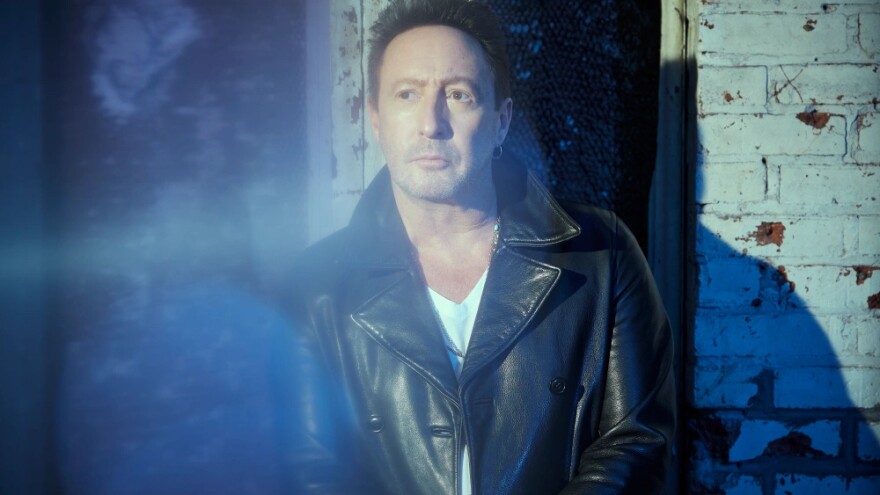Julian Lennon wasn’t planning to make another album. In fact, he was pretty sure he was done. “After Everything Changes, I thought that was it for me,” he says, sounding less like a rock star and more like someone finally ready to take up beekeeping. “I’d been in the business for over 30 years, and I had other passions I wanted to follow.”
These passions included children’s books, photography, documentaries, and running the White Feather Foundation—basically everything that doesn’t involve writing pop songs that inevitably get compared to his dad’s. But fate, as it turns out, had a tape deck. One that had been mailed to him by an old business manager, containing dusty reel-to-reels of early demos. Too Late for Goodbyes was in there. So was Every Little Moment. And, eventually, so was Jude.
“The first thing we worked on was Every Little Moment,” he says, referring to the co-production process with longtime friend Justin Clayton. “The tape was in great shape. We threw some real drums on it, some keys, I re-sang the choruses, and… it was ready to go. It felt like a good start.”
Good enough, in fact, that when BMG’s Hartwig Masuch nudged him with, “Jules, album?”, Julian didn’t immediately hang up the phone. “At first, I thought: maybe just some singles, maybe a couple EPs. Less pressure,” he laughs. “But after about 10 or 11 songs I just went, ‘You know what, this sounds like an album.’”
What it also sounds like is therapy. The first word on Jude? “Save me.” Not exactly the breezy, carefree entrance of someone riding a legacy name into dad rock immortality. “It was all about looking in the mirror,” Julian says. “If we want change in our lives, we have to make the change. It’s that simple.”
These songs weren’t all written at once. Some date back 30 years, some five, some just recently. But the themes—loneliness, anxiety, confusion, doubt—have been the same for decades. “Almost all of it came from asking, ‘Who am I? What am I doing? Am I happy? How do I find peace?’” he says. Then the pandemic hit, and all those questions got louder.
Adding to the existential stew was Get Back, Peter Jackson’s Beatles doc, which Julian watched with half-brother Sean. “I fell in love with Dad again,” he says, with a sincerity that sneaks up on you. “We got to see who he really was—goofy, cynical, clever, witty. I hadn’t seen that side in so long.”
If the documentary reconnected him with his father, another milestone brought Julian closer to himself: legally changing his name. “My given name was John Charles Julian Lennon,” he says. “But everyone called me Julian. Airports were a nightmare. People would see ‘John Lennon’ on my passport and go, ‘Oh, that’s funny,’ and it just… wore me down.” In 2020, he flipped it: Julian Charles John Lennon. “So now I’m Julian. Finally.”
Hence, Jude. As in Hey Jude, the song Paul McCartney wrote to comfort him during his parents’ split. “It’s a coming-of-age thing. Becoming Julian. Becoming Jude,” he says. “And after everything I’ve been through, you can ask me anything now.”
And yet, Jude doesn’t wallow. The lead single, Lucky Ones, leans into hope—a rare sentiment in environmental anthems, and a reflection of Julian’s activism. “There has to be hope,” he says. “Otherwise we’re all doomed. I’ve been thoroughly depressed, anxious, fearful. But that gets you nowhere. You have to will it to work.”
His work with indigenous tribes, his environmental documentaries, his children’s books—they all echo the same belief. That we’re capable of better. “We’ve been around for thousands of years and we still can’t get it right,” he says. “We could be living in paradise, but nooo.”
The album closes with Gaia, a sweeping, cinematic piece that sounds like it wandered in from a Broadway musical and stayed for the credits. It wasn’t even supposed to be on the record. “It was a last-minute addition,” Julian says, noting that it started as a Bill Laurance track (of Snarky Puppy fame). “I heard this French voice in my head, like old ‘30s radio, and then found her on social media. She lived 20 minutes away. How is that even possible?”
There’s more where that came from. A lot more. “There’s about a hundred more songs and ideas in those boxes,” he says. “Some pop stuff. Some instrumental film score stuff. Just stuff that never quite fit before.”
Maybe it fits now. Maybe he fits now. Julian Lennon, once weighed down by a famous name, now finally introducing himself to the world again—on his own terms, in his own voice. Not as John’s son. As Jude.
Check out the interview above and then check out the video below.


